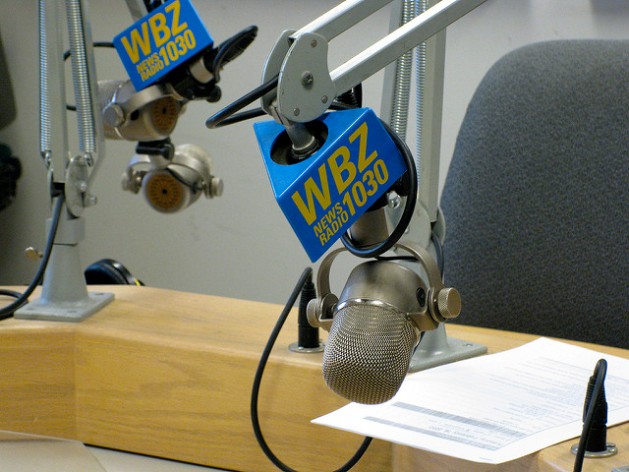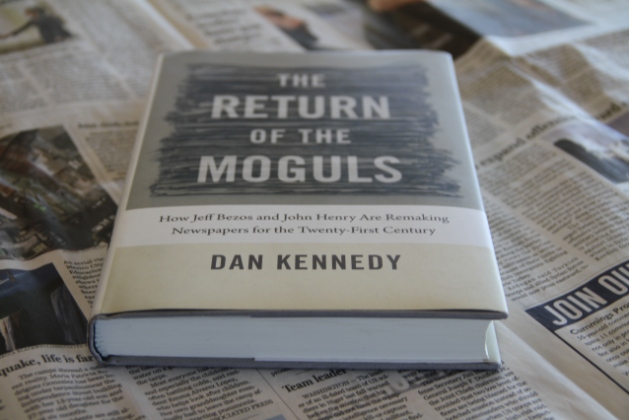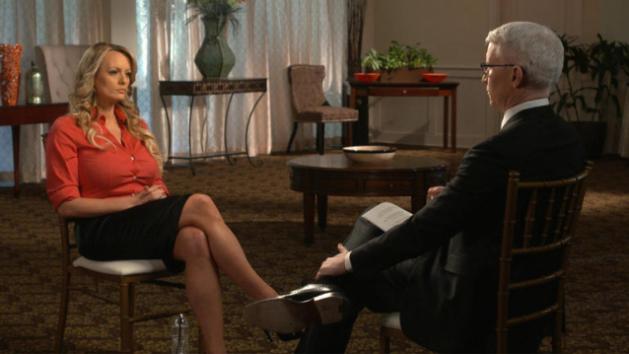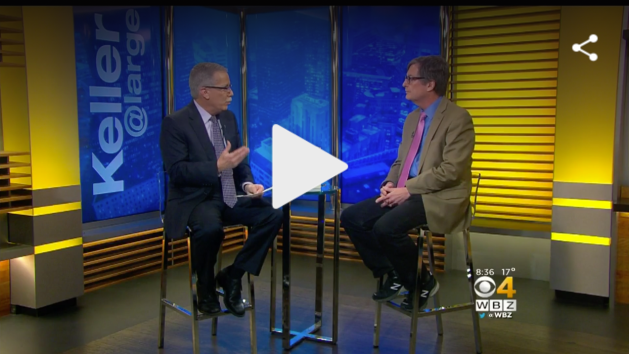With the bankrupt corporate chain iHeartMedia now in the process of dismantling WBZ Radio (AM 1030), the city’s only commercial news station, I thought I would repost a story I wrote for The Boston Phoenix in 1997 — a look at the state of radio in Boston one year after passage of the disastrous Telecommunications Act of 1997.
Sound and Fury
Corporate consolidation has destroyed commercial radio. Here’s how it happened — and how to make it better.
The Boston Phoenix
November 13, 1997
It’s cold in Rick Anderson’s office, on the third floor of a red-brick building just outside Roxbury’s Dudley Square. Not see-your-breath, rub-your-hands cold, but cold enough for Anderson to have topped off his casual attire with a heavy flannel shirt. Cold enough for a visitor to keep his sports coat on.
Anderson, 41, is the program director of WILD Radio (AM 1090), where he has worked off and on since 1984. A trim man of medium height, with a shaved head, close-cropped mustache, and goatee, Anderson speaks in the smooth, confident tones of an experienced radio announcer. In fact, in addition to his management duties, Anderson works the afternoon drive time shift, playing new hits by black artists such as SFTP (“My Love Is the Shhh”) and Bobby Brown (“Feelin Inside”).
Anderson boasts that these are good times for WILD. Since adopting a format of what he calls “straight urban music” last year, the station’s ratings have ticked up. And though the station is hardly a threat to ratings monster WJMN (94.5 FM), a/k/a JAM’N, whose music formula occupies the same niche, Anderson insists that WILD has more credibility in the black community.
“It’s all good music,” he says. “It’s just that at one end it’s done by black people, at the other end it’s done by white people. We really know the music. They do a lot of — research.” Obviously pleased with the comparison, he leans back in his chair and smiles.
But there’s another, even more crucial difference between WILD and WJMN. At a time when radio has come to be dominated by megacorporations that gobble up multiple stations in a given market, WILD is one of the last of the independents.
On February 8, 1996, a furious, multimillion-dollar lobbying effort by corporate interests paid off big time, when Bill Clinton signed the Telecommunications Act of 1996 into law. Though most of the focus was on the deregulation of the telephone, cable, and television industries, the law also contained a sweet plum for the radio industry — or, rather, for the industry’s wealthiest players. Ownership restrictions in a given market were loosened from four stations to as many as eight. National restrictions, formerly set at 40 stations, were eliminated altogether.
Not surprisingly, this green light set off a feeding frenzy. More than 4000 of the nation’s 10,000 or so commercial radio stations have changed hands since the bill’s passage. The combined price tag: a whopping $25 billion, or slightly more than this year’s federal budget deficit.
The consolidation of Boston’s stations came mainly in two big gulps. The first took place in June 1996, when Westinghouse Electric Company, owner of CBS Radio, purchased Infinity Broadcasting for $3.9 billion, creating a nationwide chain of 82 stations. The second came this past September, when Westinghouse bought out American Radio Systems for $2.6 billion. After the merger is complete, Westinghouse will be the nation’s radio powerhouse. Chancellor Media will have more stations, but Westinghouse/CBS will have more listeners at any given moment. (See “Monopoly Pieces” for an explanation of how listenership is measured.)
As a result, Westinghouse/Infinity and ARS control 10 Boston stations, accounting for some 70 percent of the radio advertising market. Under US Department of Justice antitrust guidelines, Westinghouse will have to sell or trade stations to get that figure down to 40 percent before the sale wins final approval, probably in early 1998. That will still make Westinghouse the big bully on the block. And that bully has the potential to flex its muscle more in the years to come because once it scales back to 40 percent, there is no cap on future ad-sales growth.








